Story highlights
Researchers are testing a HIV vaccine in South Africa, using volunteers
Titila Mputa, whose mother has the condition, is one of those taking part
"You get to be the superhero that you want to be," Mputa says
Every day, Luyanda Ngcobo’s routine is the same: It starts with a trip to the back cupboard, where safely hidden away is a bottle of nevirapine, an antiretroviral pill he has to take twice a day for the rest of his life.
“Some young people don’t want to take the pills because they have that anger like, ‘Why me? Why do I have this particular disease and why do I need to take these pills?’ ” he said.
But Ngcobo has never had the luxury of choice. His HIV was passed on from his mother at birth. He says the “Why me?” question often pops up, though it is never followed by finger-pointing.
“I never had that blame feeling in my heart, no,” he insisted. “Because I know that my mother wouldn’t have purposely given me HIV if she knew. Not my mom. That is how she is.”
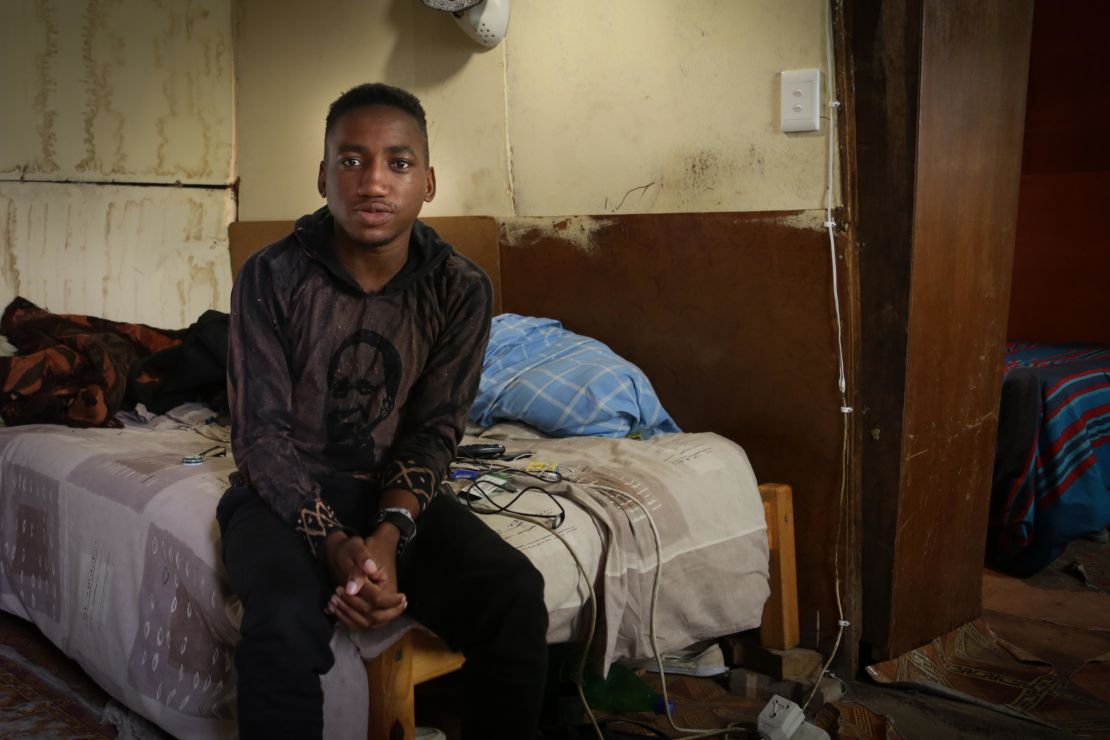
The truth about HIV’s ‘patient zero’
Lifesaving treatment
Ngcobo’s one pill taken twice a day is a far cry from the cocktail of drugs needed to combat the condition just a few years ago.
Billions of dollars in funding by the United States through the President’s Emergency Plan for AIDS Relief means millions of people are now on lifesaving HIV treatment – and that treatment continues to improve.
Ngcobo’s medication is also more effective than previous tablets, which he says is important, because the stigma around HIV and AIDS still exists.
“You can’t even cough without people feeling sorry for you,” he said.
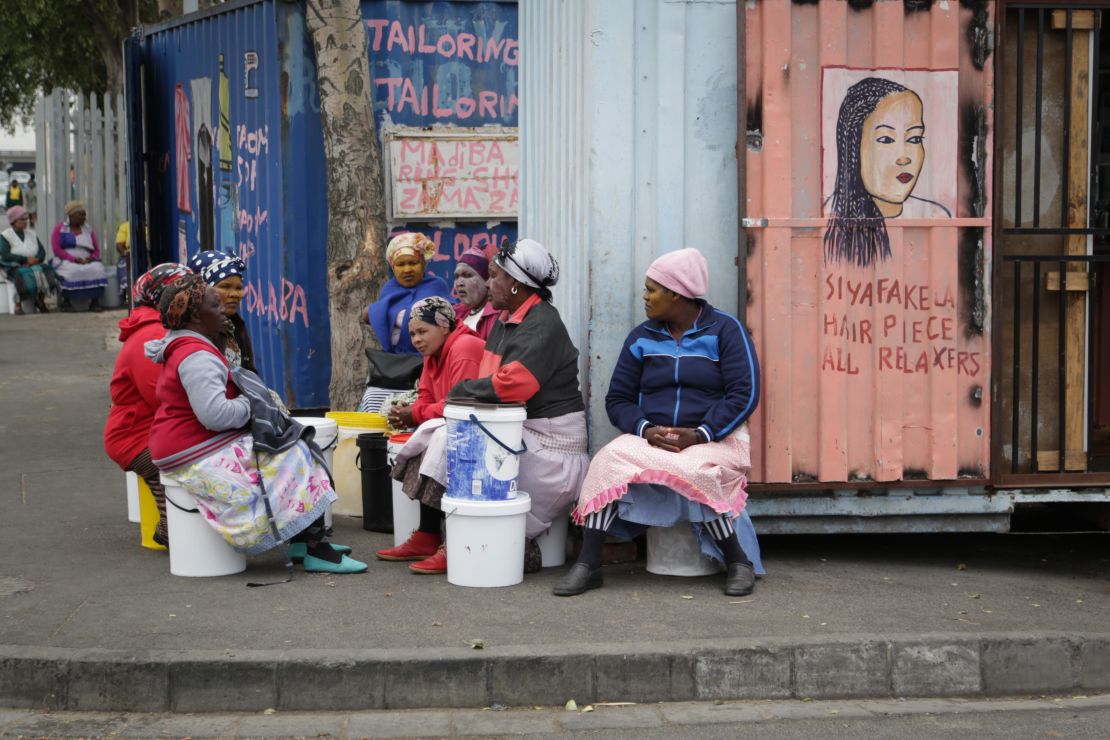
That stigma is one reason why many young people keep their status hidden and why many more refuse to even get tested.
Ngcobo says he doesn’t know how many people in this tightly populated township are living with HIV or are on courses of treatment like his.
But the government estimates that more than 3 million South Africans are on antiretrovirals: the highest figure in the world and a tremendous public health burden for this developing nation.
The children with a built-in defense against AIDS
‘People are still dying’
No generation suffers from the effects of the disease more than Ngcobo’s, but prevention and treatment, especially among teenagers, goes only so far.
“For me, it seems incredible that anyone could still die of AIDS,” said Linda-Gail Bekker, who runs the Desmond Tutu HIV Foundation’s Emavundleni Research Centre. “And people are still dying. I see it in my daily practice, particularly young people.”
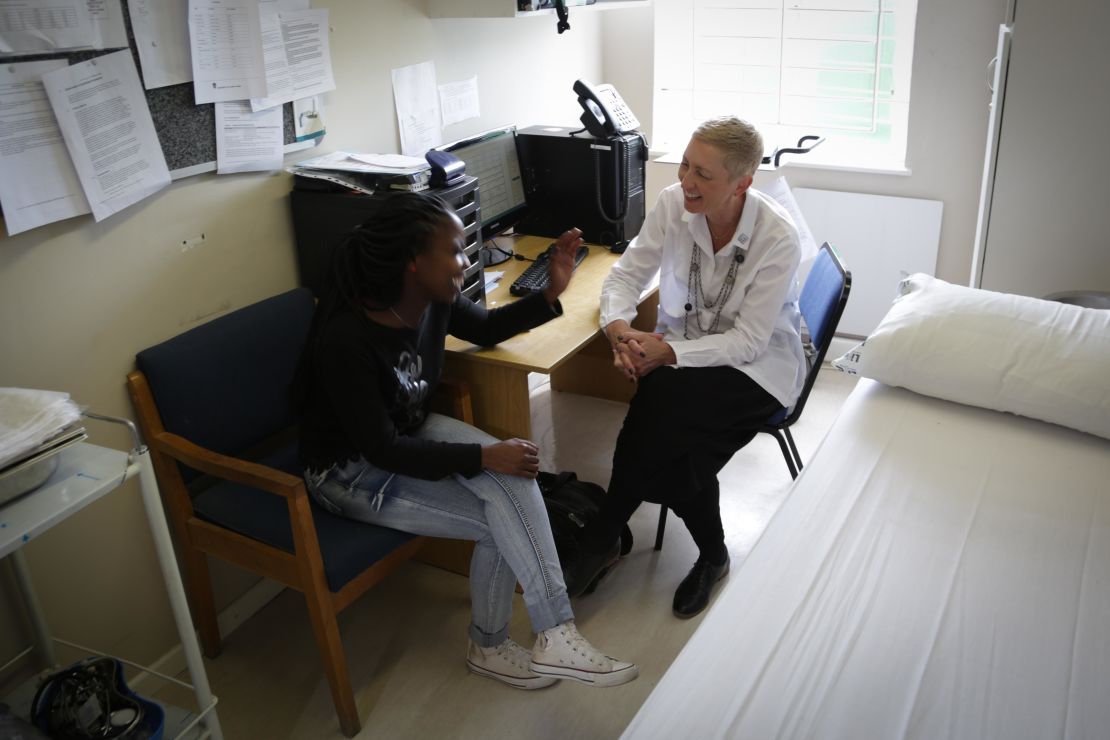
Worldwide, it’s estimated that one adolescent becomes infected with HIV/AIDS every two minutes.
Anthony Fauci, director of the US National Institute of Allergy and Infectious Diseases, says the perception that the global HIV/AIDS crisis is over is “completely unwarranted.”
He points to the United States, where, despite prevention efforts, infection rates have remained stubbornly level for the past 15 years.
In South Africa, there are still more teenagers with HIV than are receiving treatment. That, says Bekker, is a lethal combination.
“If we ultimately want to control this epidemic, we are going to need to control the number of people becoming infected, and there is no better way, no sustainable way, than having a prophylactic vaccine,” she said.
“It is the holy grail of epidemic control.”
New HIV vaccine to be trialled in South Africa
Vaccine finally within reach?
Recruiting in a mall is usually difficult, says Noro Tshongoyi. Sure, there are plenty of crowds, but people are too busy shopping to pay attention.
“They don’t want to just stand there and listen to me talk,” she said.
But it’s different with this trial, she says, since she’s offering them a chance to be part of history.
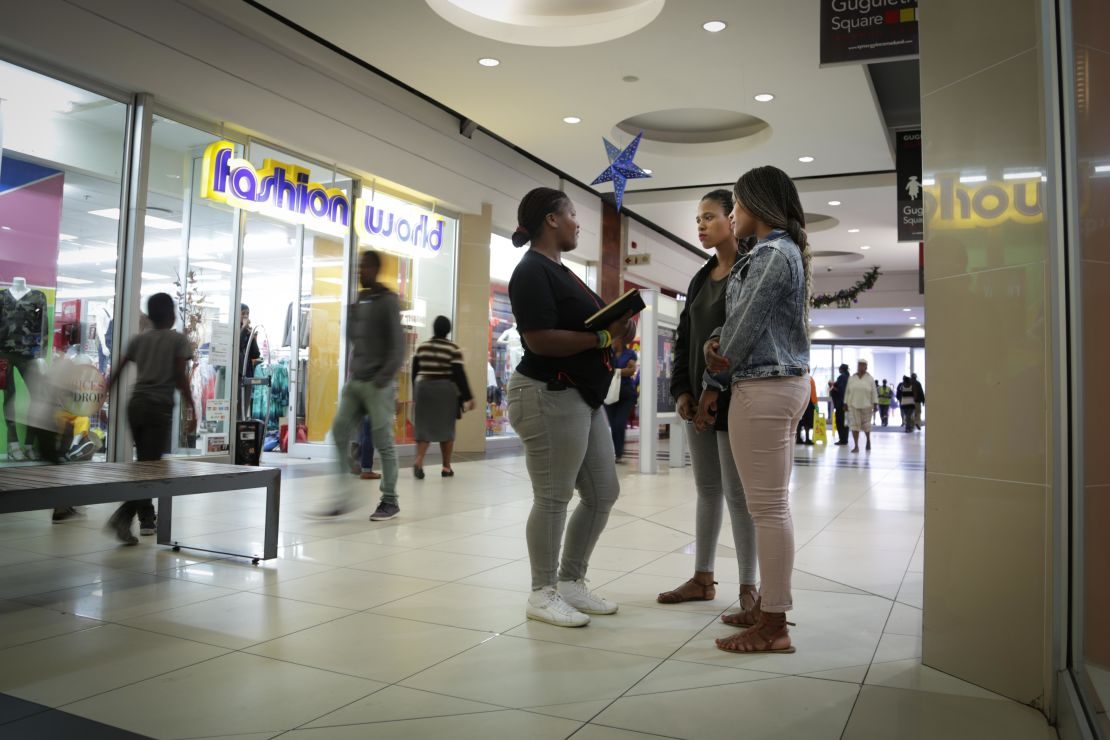
In the past month, sites in South Africa have begun enrolling more than 5,000 HIV-negative volunteers to take part in the largest vaccine trial in nearly a decade.
The phase III HVTN 702 study builds off a 2009 trial in Thailand, which was the first to show any signs of protection against HIV, with 31% protection against the virus.
By amplifying the vaccine, researchers are now hoping for 50% to 60% efficacy in the South African trial.
Fauci says that even a moderately effective vaccine would be a “major advance.”
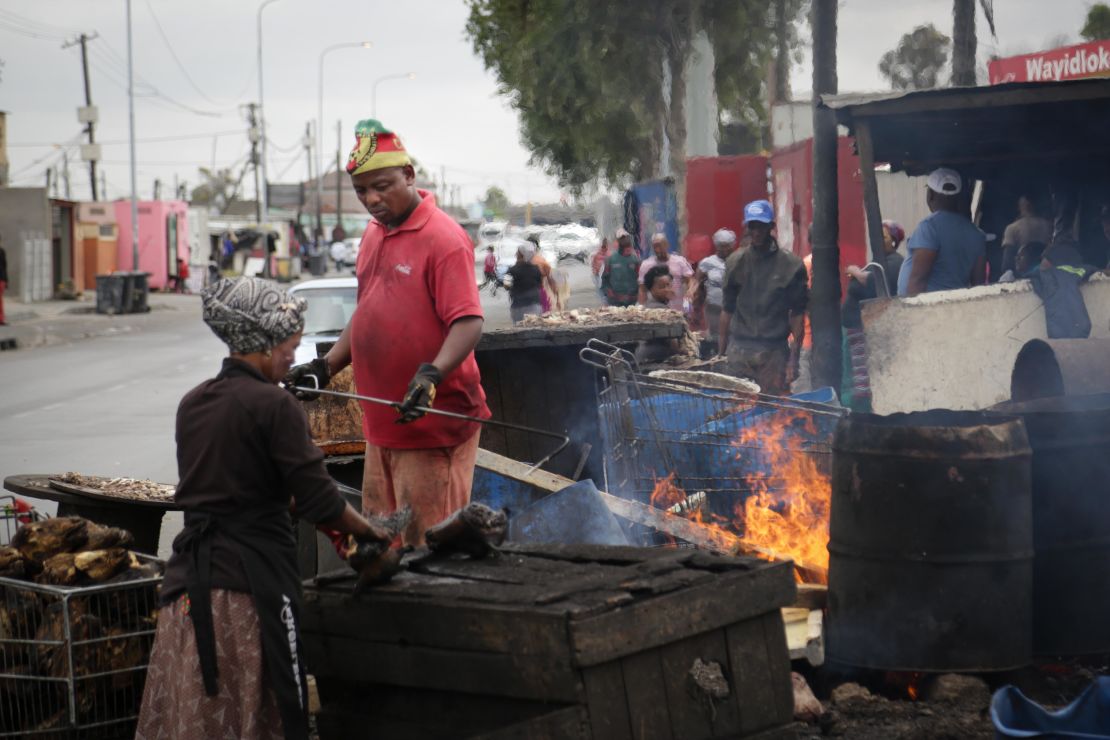
Tshongoyi approaches two young women who need very little convincing before exchanging details.
“The problem is, they can’t negotiate when it comes to sex,” she said. “They want to protect themselves, but with a condom, they can’t. If their boyfriend doesn’t want to use one, that is it.”
Meet the teenager controlling her HIV
‘The last chapters of HIV’
Bekker’s Emavundleni Research Centre was built for this moment; it sits in the heart of a township that has felt the full brunt of the epidemic.
For years, the facility has carried out trial after trial, though never one like HVTN 702.
“We have written half the book,” Bekker said. “This is not the time to put the book down and walk away. We can collectively write the last chapters of HIV.”
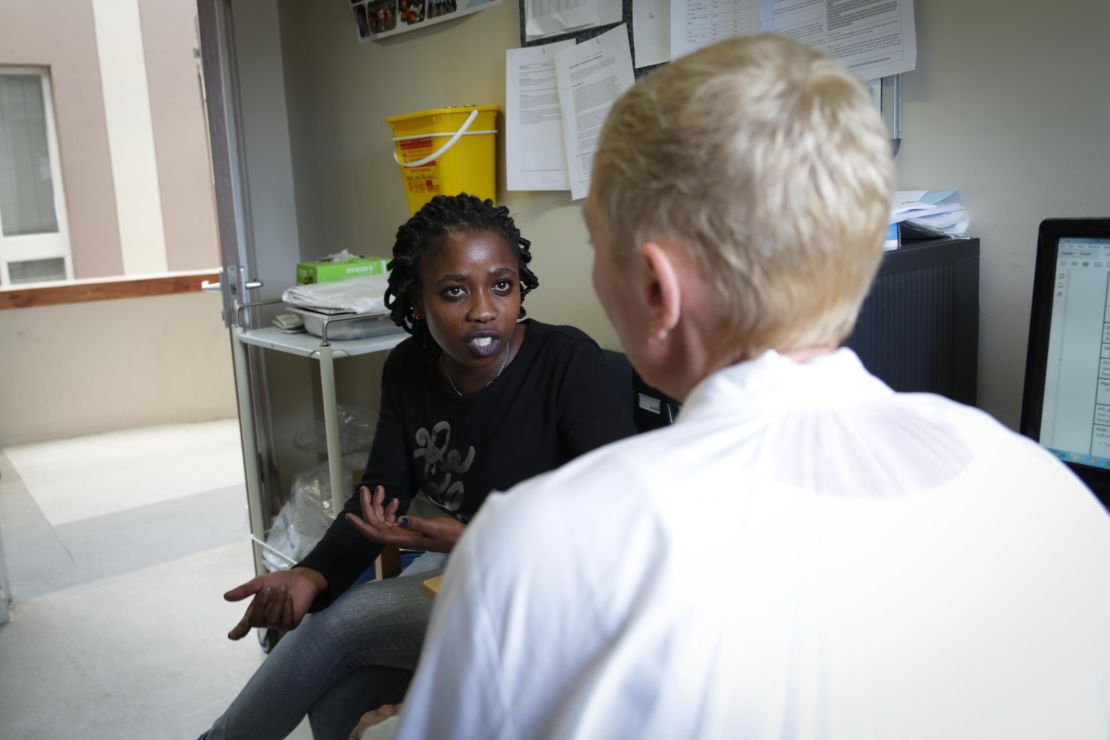
But the South African government recently redirected a portion of its research budget, and there are fears that outside funding from the United States and other donors could also dry up.
If HVTN 702 doesn’t succeed, researchers know, the next trial would be years away.
It’s early afternoon, and the center is still full of mainly young women, desperate to gain control.
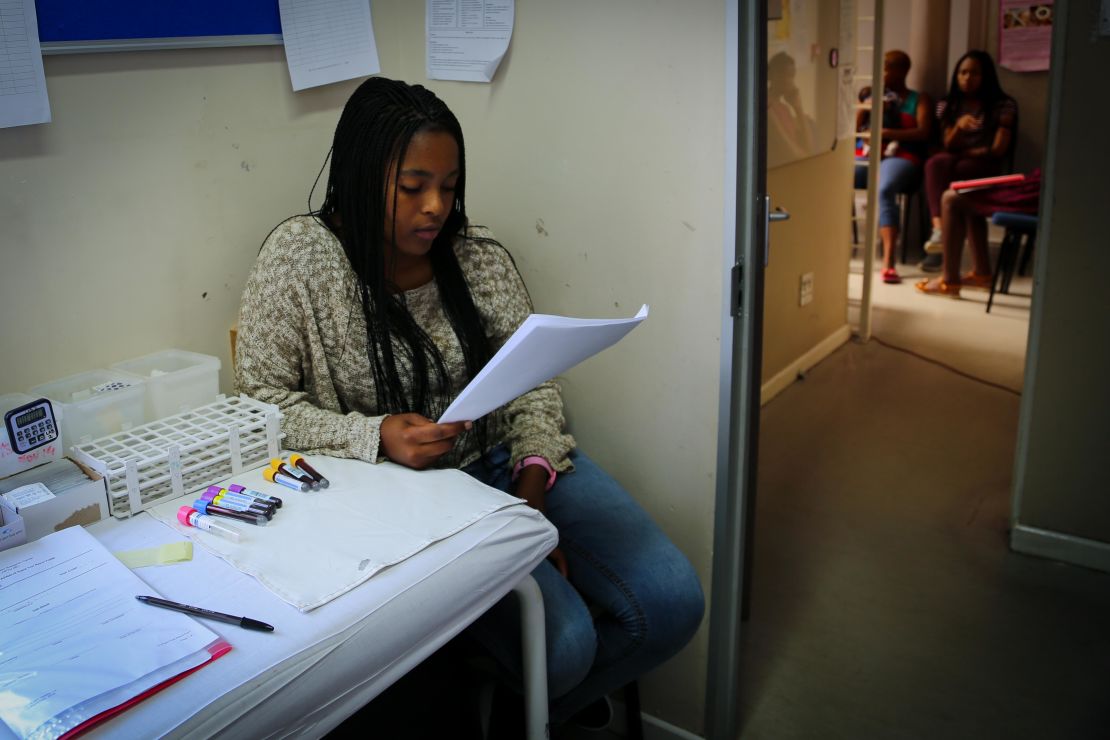
Inside one of the examination rooms, Azola Dayeni reads about the pre-exposure prophylaxis (or PrEP) study she has enrolled in.
“I have a partner, but I don’t trust him,” she explained. She hopes the PrEP will keep her safe – but, she said, “a vaccine is the ultimate protection.”
Time to write last chapter on HIV
An HIV-free generation?
No matter how good treatment becomes, the impact of HIV on Titila Mputa’s family is permanent.
“I just went out to school, and when I left, (my mother) was fine,” Mputa recalled. “When I came back, she was not there, and they told me that she was in hospital, that she had a stroke.”
Four successive strokes, complications of the virus, crippled her mother. The treatment saved her mother’s life, but Mputa doesn’t want any other families to suffer like they did.
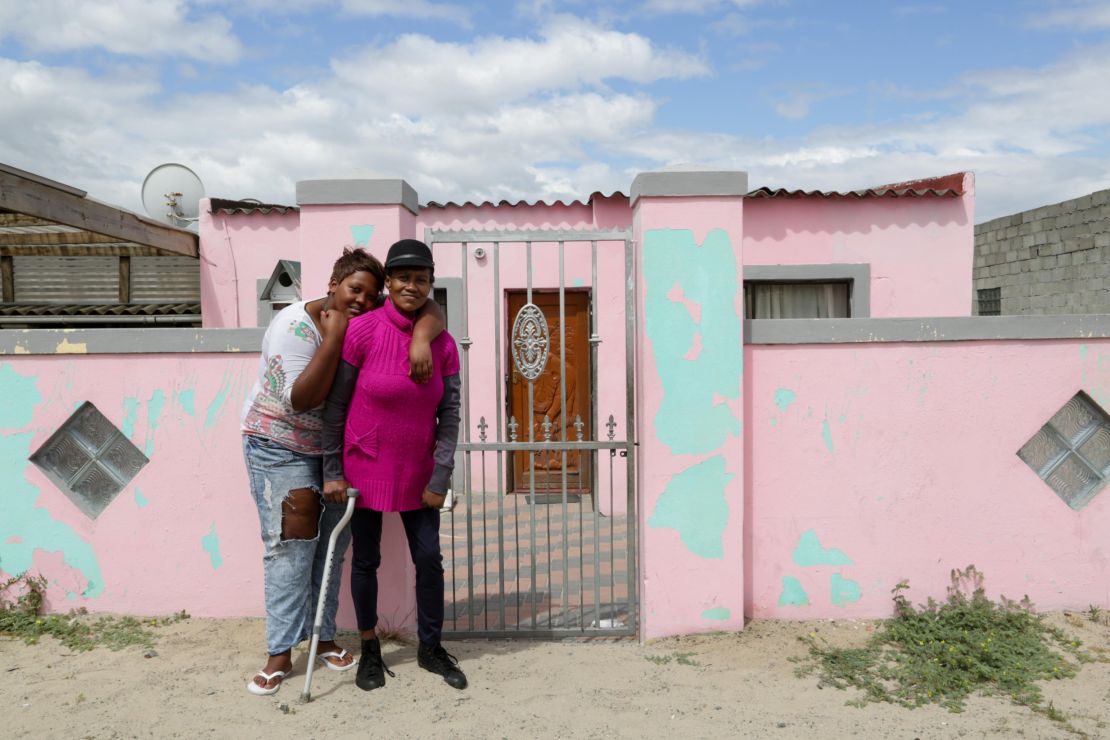
She is HIV-negative, so she volunteered to participate in the initial phases of the study that cleared the way for HVTN 702.
How HIV spread around the world
She knows it’s too late for her family and for many in her generation but is excited to be able to help ensure that there’s hope for the next.
“You get to be the superhero that you want to be,” Mputa said. “You doing this can help a thousand people out there. You doing this can help create an HIV-free generation.”






